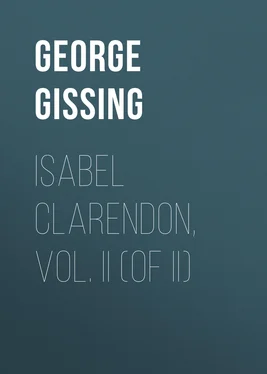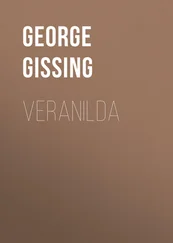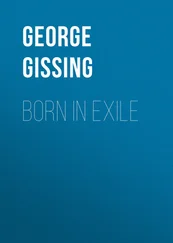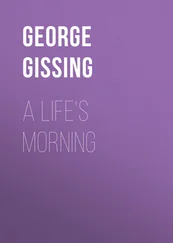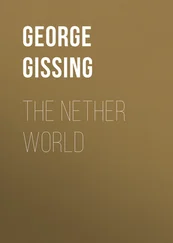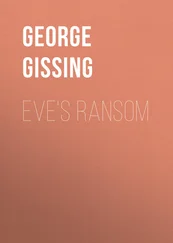George Gissing - Isabel Clarendon, Vol. II (of II)
Здесь есть возможность читать онлайн «George Gissing - Isabel Clarendon, Vol. II (of II)» — ознакомительный отрывок электронной книги совершенно бесплатно, а после прочтения отрывка купить полную версию. В некоторых случаях можно слушать аудио, скачать через торрент в формате fb2 и присутствует краткое содержание. Жанр: foreign_prose, literature_19, foreign_antique, на английском языке. Описание произведения, (предисловие) а так же отзывы посетителей доступны на портале библиотеки ЛибКат.
- Название:Isabel Clarendon, Vol. II (of II)
- Автор:
- Жанр:
- Год:неизвестен
- ISBN:нет данных
- Рейтинг книги:3 / 5. Голосов: 1
-
Избранное:Добавить в избранное
- Отзывы:
-
Ваша оценка:
- 60
- 1
- 2
- 3
- 4
- 5
Isabel Clarendon, Vol. II (of II): краткое содержание, описание и аннотация
Предлагаем к чтению аннотацию, описание, краткое содержание или предисловие (зависит от того, что написал сам автор книги «Isabel Clarendon, Vol. II (of II)»). Если вы не нашли необходимую информацию о книге — напишите в комментариях, мы постараемся отыскать её.
Isabel Clarendon, Vol. II (of II) — читать онлайн ознакомительный отрывок
Ниже представлен текст книги, разбитый по страницам. Система сохранения места последней прочитанной страницы, позволяет с удобством читать онлайн бесплатно книгу «Isabel Clarendon, Vol. II (of II)», без необходимости каждый раз заново искать на чём Вы остановились. Поставьте закладку, и сможете в любой момент перейти на страницу, на которой закончили чтение.
Интервал:
Закладка:
“Astonishingly warm for January. You find it so? So do I. Yes, you really notice it?”
“I have been thinking over it since I got up,” said Isabel. “I wonder how many degrees we have in this room?”
With the delight of a shy man who has found something definite to speak of, Colonel Stratton at once started up to go to the thermometer which hung in the window; a half-suppressed laugh made him stop and turn round.
“You don’t really care to know,” he said, flushing up to the eyes. “That’s one of your jokes, Mrs. Clarendon. Ha, ha! Good!”
He stood before her, desperately nibbling both ends of his moustache—he had acquired much skill in the habit of getting them both into his mouth at the same time.
“Well, colonel?”
“You are in a—a frisky mood this morning, Mrs. Clarendon,” he burst forth, laughing painfully.
“A what kind of mood?”
“I beg your pardon. I should have chosen a better word,” he exclaimed, in much confusion. “It really is wonderfully warm for the season—you notice it?”
“Colonel, I assure you I notice it.”
Fear at length overcame fascination.
“I must go and have a look at that new bay,” he murmured. “You—you’ll excuse me, Mrs. Clarendon? Ah, here’s Rose! Don’t you notice how very warm it is, my dear?”
“Rose,” said Mrs. Clarendon, when the colonel had made his escape at quick time, “come here and answer me a rude question. Don’t be shocked; it’s something I do so want to know. How did the colonel”—she lowered her voice, her eyes were gleaming with fun—“how did the colonel propose to you?”
“My dear,” was the reply, given in a humorous whisper, “I did it myself.”
On another occasion, Colonel Stratton came into the room when Isabel was reading. She just noticed his presence, but did not seem inclined to talk, had, in fact, a shadow on her brow. The colonel observed this, by side glances. He moved about a little, and somehow managed to get behind her chair. Then, tapping her on the shoulder—it was his habit with male acquaintances, and he was probably unconscious of the act—he said, in a low voice but with much energy:
“It’s a damned shame! A damned shame!” He had disappeared when Isabel turned to look at him.
She was not quite well that day, or something troubled her. After lunch she went to her own room, and, when she had sat for some time unoccupied, took from her writing-case a letter which she had written the day before. It was to Ada. As she glanced over it, some painful emotion possessed her.
“I can’t send it! I am ashamed!” Her lips uttered the words which she had spoken only to herself.
She crumpled the sheet, and threw it into the fire.
She dined alone, and, a little later, Mrs. Stratton came to sit with her. After various talk, Mrs. Stratton said:
“A couple of friends are coming from town to-morrow—one of them a friend of yours.”
“Who?”
“Rather more than a friend; a relative, I suppose.”
“Robert Asquith?” said Isabel, surprised.
“Yes; I invited him some time ago, at Knightswell.”
“Why, I had a letter from him just before I left, and he didn’t say anything about it. How came you to make such friends with him?”
“Oh, he took my fancy! And I thought it might be pleasant for you to meet here.”
“Certainly; I am delighted.”
“I’m so glad you like him,” she added, after a pause. “I had no idea you got on such good terms when he came down.”
“Why do you never speak of him?” Mrs. Stratton asked, smiling slightly.
“Don’t I? I really can’t say. I suppose I take Robert for granted. I dare say he speaks as little of me as I of him.”
“Perhaps so,” said the other, in an unusually absent way. Then she asked:
“He has never been married?”
“Oh no! Robert is a confirmed old bachelor.”
“Rather strange that, don’t you think? He is in easy circumstances, I think you told me?”
“Decidedly easy.”
“And good-looking.”
“You think so? Yes, I suppose he is,” mused Isabel.
“Suppose? You know very well he is, my dear. And what is he doing, pray?”
“I really can’t say. He has rooms, and lives, I suppose, a very idle life. I shouldn’t wonder if he goes back to the East some day.”
“Very much better for him to stay in England, it seems to me,” remarked Mrs. Stratton drily. Isabel changed the subject.
She went to her bedroom early, and, when her attendant had helped her into the easy costume of a dressing-gown, sat by the fire and let her eyes dream on the shapes of glowing coal. Presently she shook loose her hair, which was done up for the night, and spread it over her shoulders. She took a tress between the fingers of her left hand and stroked its smoothness, a smile growing upon her lips. Then she paced the length of the room several times, standing a moment before the mirror when she reached it. The dressing-gown became well the soft outlines of her form; the long, dark hair, rippling in its sweep from brow to shoulder, changed somewhat the ordinary appearance of her face, gave its sweetness a graver meaning, a more earnest cast of thought.
“If he saw me now he would tell me I was beautiful.”
She smiled at herself, sighed a little, and, before resuming her seat, took from a drawer three letters which she had received during her stay here. Each was of many pages, closely written; he who wrote them had much to say. Isabel had read them many, many times. No such letters had ever before come to her; her pride and joy in them was that of a young girl, touched, however, with the sadness and regret never absent from joy which comes late. She thought how different her life would have been if she had listened to words like these when the years spread out before her a limitless field of hope. It seemed too much as if these letters were addressed to some one else, and had only been given her to read. She had to bring herself with conscious effort to an understanding of all they implied, all they demanded. Yet they moved her to deepest tenderness.
And that was the most marked quality of the letters themselves. In them was sounded by turns every note of love. There was the grace of pure worship, the lyric rapture of passion and desire, the soft rhythm of resigned longing, the sweet sadness of apprehension; but the note of an exquisite tenderness was ever recurrent, with it the music began and ended. They were the love letters of a poet, one in whom melancholy mingled with every emotion, whose brightest visions of joy were shadowed by brooding mortality. There was nothing masterful, no exaction, no distinctly masculine fervour. If a dread fell upon him lest the happiness promised was too great, it found voice in passionate entreaty. He told her much of his past life, its inner secrets, its yearnings, its despair. Of her infinite pity she had chosen him; she would not let him fall again into utter darkness? Love did not stir in him vulgar ambitions; to dwell in the paradise of her presence was all that his soul desired; let the world go its idle way. Too soft, too tender; another would have read his outpourings with compassionate fear, dreading the future of such a love. He visioned a happiness which has no existence. Men win happiness, but not thus. To woo and win as pastime in the pauses of the world’s battle, to make hearth and home a retreat in ill-hap, a place of rest between the combats of day and day, to kindly regard a wife for her usefulness, and children for the pride they satisfy, thus, and not otherwise, do men come to content. Content that is not worth much, perhaps; but what is the price current of misery?
Isabel wrote in reply to each letter; King-cote would have liked to pay in gold the village postman who brought her writing to his door. She, too, spoke with love’s poetry, and her passion rang true. How strange to pen such words! She had always thought of such forms of expression with raillery, perhaps with a little contempt. Boys and girls of course wrote to each other in this way; it was excusable as long as one did not know the world. For all her knowledge of the world she would not now have surrendered the high privilege of language born of the heart. And in all that she wrote—in her thoughts too—it was her effort to place him in that station of mastery which he would not claim for himself. Was there already self-distrust, and was it only woman’s instinct of subjection? She would have had him more assured of his lordship, would have desired that he should worship with less humility. If a man have not strength, love alone will not suffice to bind a woman to him; she will pardon brutality, but weakness inspires her with fear. Isabel had no such thoughts as these, but perchance had his letters contained one sentence of hard practical planning at the end of all their tenderness she would have found that something which unconsciously she lacked. She had bridged the gulf between him and herself; she was ready to make good words by deed, and, in spite of every obstacle, become his wife; it must be his to bear her manfully from one threshold to the other. Once done, she felt in her soul that she should regret nothing; she loved him with the first love of her life. But his hand must uphold her, guide her, for she would close her eyes when the moment came....
Читать дальшеИнтервал:
Закладка:
Похожие книги на «Isabel Clarendon, Vol. II (of II)»
Представляем Вашему вниманию похожие книги на «Isabel Clarendon, Vol. II (of II)» списком для выбора. Мы отобрали схожую по названию и смыслу литературу в надежде предоставить читателям больше вариантов отыскать новые, интересные, ещё непрочитанные произведения.
Обсуждение, отзывы о книге «Isabel Clarendon, Vol. II (of II)» и просто собственные мнения читателей. Оставьте ваши комментарии, напишите, что Вы думаете о произведении, его смысле или главных героях. Укажите что конкретно понравилось, а что нет, и почему Вы так считаете.
